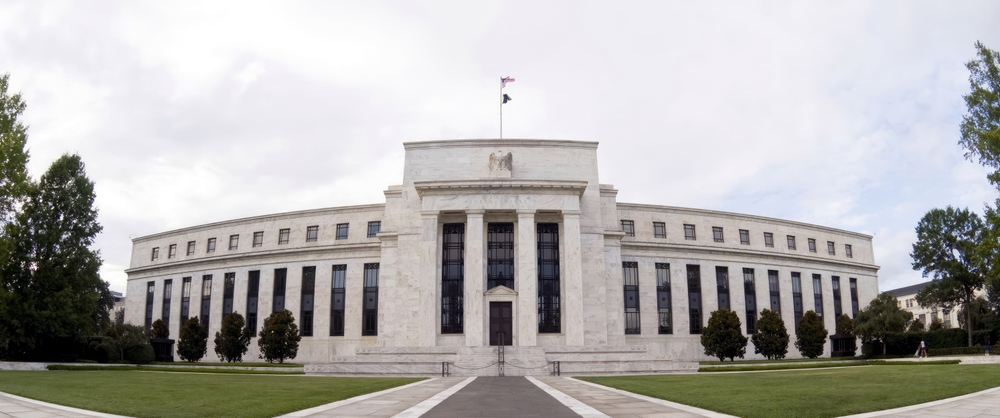
Trump's Rhetoric May Unconstitutionally Sink the Pharmaceutical Industry
His misunderstanding of drug costs and drug pricing could lead to a savage and senseless system of price controls.
One of the White House’s many thunderbolts was Trump’s recent Executive Order, which proudly claimed that his administration was now “Delivering Most-Favored-Nation Prescription Drug Pricing to American Patients.” The President does not cite any source of statutory authority for this venture, but contents himself with boilerplate language that it will all be “consistent with applicable law,” when, to the contrary, the Supreme Court has declared “that if an agency seeks to decide an issue of major national significance, a general delegation of authority may not be enough; instead, the agency’s action must be supported by clear statutory authorization.”
What the Supreme Court has said on the separation of powers doesn’t seem to matter to Trump. Instead, his fact sheet explains the wisdom of this approach is “to Put American Patients First by Lowering Drug Prices and Stopping Foreign Free-riding on American Pharmaceutical Innovation.” Trump explains that “[i]n case after case, our citizens pay massively higher prices than other nations pay for the same exact pill, from the same factory, effectively subsidizing socialism [abroad] with skyrocketing prices at home.”
So Trump thinks it is possible to keep innovation alive and well in the United States while imposing a massive system of price controls. Yet sadly, as a matter of first principle, such price controls invariably backfire. Surely they will in this case if Trump’s price cuts amount to between 50 percent to 90 percent as promised. Indeed, his blockbuster policy embodies the worst form of price controls, because this monster rollback, unlike the early rent-control laws that just froze prices at then-current levels, will cut far deeper into markets. That error could be fatal here.
The basic insight is that few American companies will be able to cover their operating costs with these huge cuts, let alone invest in developing, testing, and marketing new drugs. Adding to its many flaws, the program is said to take effect within 30 days, long before any meaningful negotiations could be concluded within the industry or between governments. His order is a death warrant if no new revenue sources can be identified.
Sadly, the President exhibits little understanding of how the current system works. His first blunder is to consider only identical manufacturing costs. The costs of marketing and selling these identical pills, however, are more expensive in the United States, given the extensive rules dealing with safety inspection and consumer protection statutes that are not found in other countries. Worse still, the cost of the liability system in the United States for products liability cases is far higher than anywhere else in the world. Rare is the case where a drug manufacturer is found responsible for the improper fabrication of the drugs, as today’s manufacturing techniques are more than up to this task. But the question of so-called duty-to-warn liability is a major cost of the American system found nowhere else in the world. Current doctrine provides that compliance with statutory warnings vetted by the Food and Drug Administration is only evidence that these warnings are sufficient, so that no matter how exhaustive the warning, it is always open for a disappointed plaintiff to claim that stronger warnings were needed and that if they were supplied, the aggrieved patient would have chosen another course of action. Those tidy sums must be built into the American pricing system. Over the years, this problem has proved particularly severe concerning the sale of vaccines, which at one time generated so much potential tort liability that in 1986 Congress passed the National Vaccine Injury Compensation Program to remove liability from some vaccine cases. It has done so, at least in part, with COVID-related injuries, which may yet generate some substantial liabilities.
Worse still, at least one important California case, Gilead Tenofovir, now on appeal to the California Supreme Court (with a brief from me), has held that tort law can be used to extract billions in damages from pharmaceutical companies for failing to develop new drugs that plaintiffs deem superior to some blockbuster drugs long on the market. The Inflation Reduction Act further forces manufacturers of key blockbuster drugs to lower their prices substantially on pain of losing all their Medicaid business.
Not only are costs far higher in the American system, but MFN clauses will make everyone worse off because of the problems with marginal cost pricing. General competitive markets are efficient because, in general, the marginal cost of producing the last unit is equal to its marginal benefit, so that markets clear at an optimal price. Not so in the pharmaceutical industry, where the costs of bringing a new chemical entity to market, according to the Tufts Center for Drug Development estimates that as of 2021 that cost had reached $2.6 billion, up from an inflation-adjusted $802 million in 2003. But once that pill is made, the additional pills can cost a small sum, like a dollar.
It would be great if all consumers at home and abroad could buy each of these pills for a dollar, provided that there is some brave soul willing to fork up the $2.6 billion for that first pill. When there are no takers, one possible solution is for the government to give a massive subsidy to pay the upfront costs, but it only has the capabilities to review drug applications and neither the resources nor expertise to undertake its research. Nor can it figure out which private developer to subsidize to the tune of those development costs. So, at this point, the private firm is on its own and must therefore increase the price of the latter drugs for sale to reduce the cost of that initial drug. There is no unique formula for doing this thankless job. But there is one immovable constraint. The need for drugs is not measured accurately by thinking about the ability to pay for drugs.
This is why a huge charitable industry has developed to subsidize sales or gifts to indigent people, which only makes it more imperative that people who do have the ability to, in contrast to the need for a drug, pay more than their fair share to keep the market alive. Hence, the United States, with the greatest wealth and the highest costs, has to pick up the largest share of this burden. Thus, price discrimination is a necessary and indispensable element of a capitalist system of drugs. The United States is not being ripped off by the rest of the world when it pays the most and gets the most. Instead, what happens is that other rich countries also must pay something more than marginal costs, which removes some fraction of the fixed costs from American consumers and hence makes things better off for all concerned. But it will be difficult in the long-run, and impossible in the short-run, to pass costs onto those nations whose national health services use monopsony power to buy all or virtually all the drugs in each country. What clout do we have to force them to change their ways within 30 days?
Yet ironically, the Trump proposal does not call for even this remedy. The deal is that American companies will receive the same prices as the nation that pays the lowest prices, regardless of the local nation's ability to find the money for higher prices in their budgets. Thus, suppose that one million pills are sold in some impoverished country for $1 million, which could even be a lost sale. That same drug sells a billion units for $10 each in the American market. MFN now means that American prices fall 90 percent.
Now, the American company will attempt to increase its revenues by withdrawing the drug from all those impoverished countries. But that slash-and-burn approach will still not lift prices back to premarket levels if many other nations also had low price deals that made economic sense before MFN.
But Trump could prove too clever by announcing that the MFN rule is tied to drug prices worldwide, the day before the new executive order was implemented. Well, at this point, the revenue losses put all American companies out of business unless they can get the restriction removed on constitutional grounds as being outright confiscatory. This suit would win, even today, if it went the distance. But lawsuits take years while the gratuitous losses kick in today, here and across the world. At this point, think of all the brave rhetoric about how the world has ripped off the United States, which is especially ironic when, for all its many structural defects, the relative freedom to price has resulted in a system that delivers more new drugs faster to the United States than anywhere in the world:
Nearly 85 percent of new drugs sold in the U.S. were sold in the U.S. either first or in the same quarter they were introduced in other countries. Over half of new drugs are launched first in the U.S. before being launched in other countries, with an average lag of about one year between launch in the U.S. and launch in another country.
Those numbers would look much stronger if Trump had done what the American people elected him to do: lower domestic prices through systematic deregulation. The same conspiratorial attitude that has led to the tariff crisis may be duplicated here. Markets have not yet tumbled because the Executive Order includes no enforcement mechanism, scant reason to allow a time bomb to hang over the pharmaceutical industry. Trump says that “[t]he drug lobby is the strongest lobby.” But that would no longer be true, Mr. President, if your regulatory bomb detonates.
Richard A. Epstein is a senior research fellow at the Civitas Institute. He is also the inaugural Laurence A. Tisch Professor of Law at NYU School of Law, where he serves as a Director of the Classical Liberal Institute, which he helped found in 2013. Epstein is also the James Parker Hall Distinguished Service Professor of Law Emeritus and a senior lecturer at the University of Chicago.
Economic Dynamism
.jpg)
Do Dynamic Societies Leave Workers Behind Culturally?
Technological change is undoubtedly raising profound metaphysical questions, and thinking clearly about them may be more consequential than ever.

The War on Disruption
The only way we can challenge stagnation is by attacking the underlying narratives. What today’s societies need is a celebration of messiness.

Unlocking Public Value: A Proposal for AI Opportunity Zones
Governments often regulate AI’s risks without measuring its rewards—AI Opportunity Zones would flip the script by granting public institutions open access to advanced systems in exchange for transparent, real-world testing that proves their value on society’s toughest challenges.

Downtowns are dying, but we know how to save them
Even those who yearn to visit or live in a walkable, dense neighborhood are not going to flock to a place surrounded by a grim urban dystopia.

The Housing Crisis
Soaring housing costs are driving young people towards socialism—only dispersed development and expanded property ownership can preserve liberal democracy.

Oren Cass's Bad Timing
Cass’s critique misses the most telling point about today’s economy: U.S. companies are on top because they consistently outcompete their global rivals.

Blocking AI’s Information Explosion Hurts Everyone
Preventing AI from performing its crucial role of providing information to the public will hinder the lives of those who need it.
.avif)


.jpeg)




.jpg)





